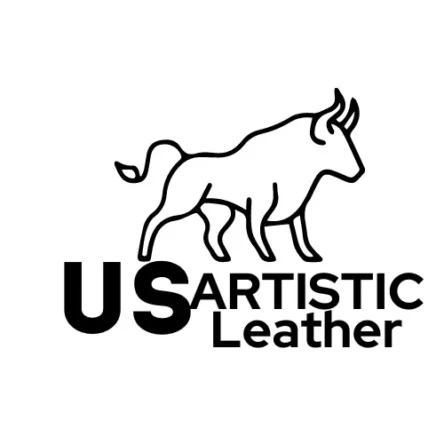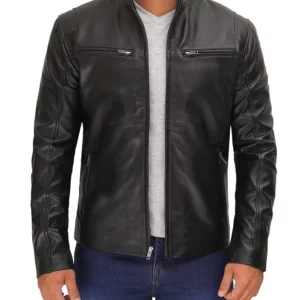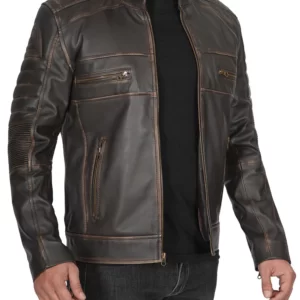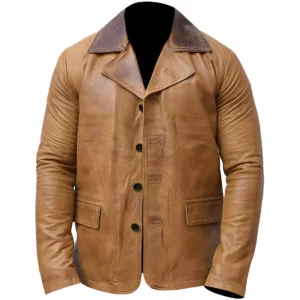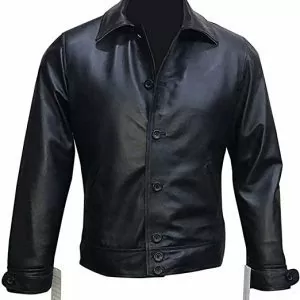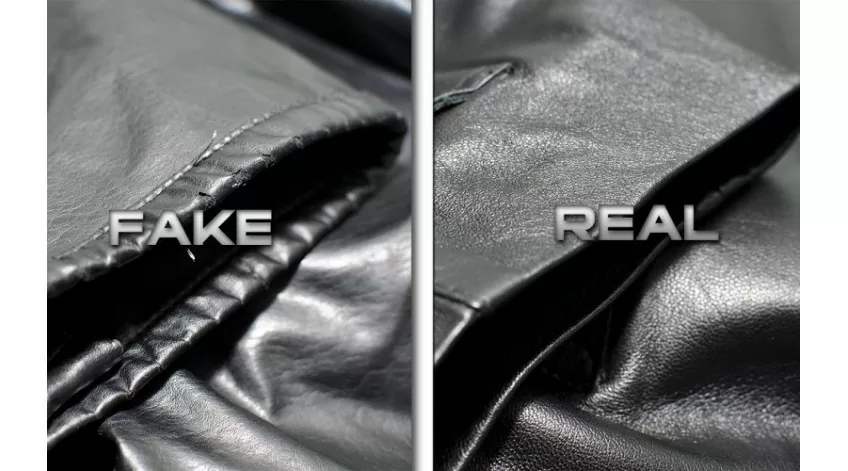
Leather, with its luxurious feel and enduring appeal, has been a prized material for centuries. From fashion accessories to furniture upholstery, the demand for leather products remains high. However, with the proliferation of synthetic alternatives, distinguishing real leather from faux counterparts can be a daunting task. To aid consumers in making informed purchasing decisions, it’s crucial to understand the right and best ways to identify real leather.
Related Article: Faux vs. Real Leather Jacket: Options for Budget-Friendly Black Leather Jackets
Best ways to identify real leather
Visual Inspection
A visual assessment is often the first step in determining the authenticity of leather. Genuine leather exhibits unique characteristics that set it apart from synthetic materials. One such feature is the presence of natural imperfections, such as grain variations and subtle markings, which lend authenticity to the material. Conversely, synthetic leather tends to have a uniform appearance devoid of these natural irregularities.
Moreover, inspecting the edges of leather products can provide valuable insights into their authenticity. Genuine leather typically exhibits rough, unfinished edges, whereas synthetic materials may have clean, polished edges.
Texture and Feel
The tactile experience of touching leather can also provide clues to its authenticity. Genuine leather possesses a distinct texture characterized by a soft, supple feel that becomes more pliable with use. Run your fingertips across the surface of the leather to discern any grain patterns or irregularities, which are indicative of its natural origin.
Synthetic leather, on the other hand, often feels smoother and lacks the inherent warmth and richness of genuine leather. Additionally, synthetic materials may exhibit a plastic-like texture that feels artificial to the touch.
Smell Test
The aroma of leather is unmistakable and can serve as a reliable indicator of authenticity. Genuine leather emits a distinct, earthy scent reminiscent of nature and animal hide. This characteristic odor results from the tanning process used to preserve the leather and is difficult to replicate in synthetic materials.
Conversely, synthetic leather may emit chemical odors or artificial fragrances, which can be discerned upon close inspection. Trust your sense of smell to differentiate between genuine and imitation leather products.
Water Absorption
Another method for determining real leather involves assessing its reaction to water. Genuine leather has a porous structure that allows it to absorb moisture to some extent. To conduct this test, place a small drop of water on an inconspicuous area of the leather and observe its behavior.
If the water is quickly absorbed into the leather without leaving a mark, it is likely genuine. However, if the water beads up or sits on the surface without being absorbed, the material may be synthetic. It’s important to note that excessive exposure to water can damage leather, so exercise caution when conducting this test.
Burn Test
While not recommended for all consumers due to safety concerns, a burn test can provide valuable insights into the composition of leather. To perform this test, cut a small sample of the material from an inconspicuous area and hold it with tweezers over a flame.
Genuine leather will singe and emit a distinct odor similar to burning hair, while synthetic materials may melt or produce noxious fumes. Exercise caution when performing this test and ensure proper ventilation to avoid inhaling harmful substances.
Related Article: Biker Style Asymmetrical Real Black Leather Jacket
Bend and Flexibility
An additional method for determining real leather involves assessing its flexibility and response to bending. Genuine leather possesses natural elasticity, allowing it to flex and bend without creasing or cracking. When gently bending a leather product, such as a jacket or bag, observe how the material responds. Authentic leather will exhibit a supple feel and return to its original shape after being manipulated. In contrast, synthetic materials may feel rigid or stiff and may develop permanent creases or wrinkles when bent. By evaluating the bend and flexibility of leather items, consumers can further confirm their authenticity and ensure they’re investing in genuine products that withstand the test of time.
-
Product on sale
 Cafe Racer Black Leather Jacket for Men – Premium Stylish Multi-PocketsOriginal price was: $220.00.$159.99Current price is: $159.99.
Cafe Racer Black Leather Jacket for Men – Premium Stylish Multi-PocketsOriginal price was: $220.00.$159.99Current price is: $159.99. -
Product on sale
 Mens Cafe Racer Leather Jacket BrownOriginal price was: $220.00.$159.99Current price is: $159.99.
Mens Cafe Racer Leather Jacket BrownOriginal price was: $220.00.$159.99Current price is: $159.99. -
Product on sale
 Mens Black Cafe Racer Leather JacketOriginal price was: $199.99.$159.99Current price is: $159.99.
Mens Black Cafe Racer Leather JacketOriginal price was: $199.99.$159.99Current price is: $159.99. -
Product on sale
 Mens Distressed Dark Brown Cafe Racer Vinatge Real Leather JacketOriginal price was: $199.99.$159.99Current price is: $159.99.
Mens Distressed Dark Brown Cafe Racer Vinatge Real Leather JacketOriginal price was: $199.99.$159.99Current price is: $159.99. -
Product on sale
 Mens Biker Style Asymmetrical Real Black Leather JacketOriginal price was: $210.00.$159.99Current price is: $159.99.
Mens Biker Style Asymmetrical Real Black Leather JacketOriginal price was: $210.00.$159.99Current price is: $159.99. -
Product on sale
 Black Punisher Padded Embossed Biker Leather JacketOriginal price was: $189.99.$149.99Current price is: $149.99.
Black Punisher Padded Embossed Biker Leather JacketOriginal price was: $189.99.$149.99Current price is: $149.99. -
Product on sale
 G1 Bomber Air Force Real Cow Leather Maverick Aviator Bomber Jacket | Tom Cruise 90s EditionOriginal price was: $189.99.$139.99Current price is: $139.99.
G1 Bomber Air Force Real Cow Leather Maverick Aviator Bomber Jacket | Tom Cruise 90s EditionOriginal price was: $189.99.$139.99Current price is: $139.99. -
Product on sale
 Red Dead Redemption II – Arthur Morgan Tan Brown Real Leather Jacket – RDR2Original price was: $189.99.$139.99Current price is: $139.99.
Red Dead Redemption II – Arthur Morgan Tan Brown Real Leather Jacket – RDR2Original price was: $189.99.$139.99Current price is: $139.99. -
Product on sale
 Men’s New Motorcycle Black Biker Real Leather JacketOriginal price was: $179.99.$129.99Current price is: $129.99.
Men’s New Motorcycle Black Biker Real Leather JacketOriginal price was: $179.99.$129.99Current price is: $129.99.
Final Thoughts
Identifying real leather requires a combination of visual inspection, tactile assessment, and olfactory discernment. By familiarizing yourself with the unique characteristics of genuine leather, you can make informed purchasing decisions and invest in high-quality products that stand the test of time. Whether shopping for leather apparel, accessories, or furnishings, the best ways to identify real leather empower consumers to distinguish authenticity from imitation in a saturated marketplace.
